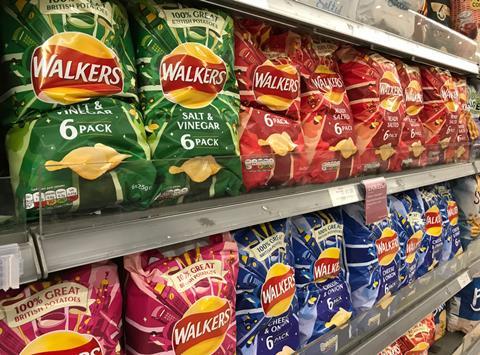
Mars, Mondelez International, Nestlé, PepsiCo and Unilever have today committed to increasing investments with the reported aim of accelerating the transition toward a circular economy for flexible packaging across Europe.
The five companies say that they support a circular economy for flexible packaging built on the principles of resource efficiency, prevention of waste and pollution, and lowering the overall environmental impact of the packaging. Individually these companies claim to be reviewing packaging designs with the aim of reducing packaging materials, improving recyclability and increasing the use of recycled and renewable content.
The participants in this new initiative have committed to working with partners and governmental bodies in a bid to improve infrastructure, going beyond individual packaging design efforts by providing concrete proposals to help enable effective collection, and improving sorting and innovative recycling of flexible packaging across Europe.
Silviu Popovici (CEO, PepsiCo Europe) commented, “We want flexible packaging to follow the circular path of plastic bottles – where we see high recycling rates and we can use up to 100% recycled content. But we need the right conditions in place to get there: widespread collection, high recycling targets, a ban on landfill and minimum incineration. This combined with investments to upgrade sorting and recycling in Europe should bring us to a circular economy and one step closer to a world where packaging never becomes waste”
Together and through cross-sector and public-private collaborations, the companies are focusing on action in five key areas.
The participating companies say that they are actively calling upon the European Commission and national governments to enact policy changes designed to incentivise circularity for packaging materials. This reportedly includes “increasingly ambitious and specific recycling targets for all packaging material types, bans on landfill, and reduction of incineration to an absolute minimum, in a harmonised manner across all EU Member States.”
Next, the companies have acknowledged that mandatory collection of all flexible packaging in Europe would help ensure materials are not discarded in the environment, guaranteeing sufficient volumes for recycling and avoiding incineration. According to the companies: “Mandatory collection of all flexible packaging should be considered as soon and as widely as possible, in the upcoming revisions of EU packaging and waste legislations.”
In addition, the companies participating in the Initiative are calling upon the European Commission and national governments for a European-wide simplification and harmonization of disposal instructions to consumers to, in their words, “support the collection of flexible packaging, improve sorting and enable consumers to support the transition toward a circular economy for flexible packaging through small actions.”
For Extended Producer Responsibility (EPR) schemes to meet higher recycling targets, the companies say that it is crucial to actively drive recycling of flexible packaging. It is their view that EPR-schemes need to stimulate structural improvements on collecting, sorting, recycling and developing end-markets for recycled material, working with partners across the value chain and (local) governments.
In the view of these major brand owners, EPR-schemes and businesses across the value chain, such as the waste management sector, should increase investments in sorting to allow flexible packaging to be recycled. They say that through improved sorting, cleaner and more valuable feedstock can be provided to recyclers, which will enable more flexible packaging to be recycled into high-value recyclates.
To incentivise the highest quality recycled material, up to food-grade to reach full circularity, the companies say that it is crucial to invest in what they describe as “advanced recycling technologies”. They hope that innovation in this field can offer environmental benefits, avoid downcycling and provide a solid business case for a sustainable future.
At the same time, the companies believe that packaging producers and the FMCG sector should be incentivised to use recycled and renewable materials through a combination of regulatory and voluntary initiatives. They say that “advanced recycling is recognised as one solution to improve full circularity of flexible packaging”, and in light of this, they advocate for “more supportive European regulations that swiftly provide increased legal clarity and investment certainty.”
Finally, the participating companies have committed to increasing investments; in circular packaging design, in new sorting and recycling technologies, and through eco-modulated EPR fees, as they argue that multiple approaches are required to ensure more flexible packaging is processed through improved infrastructure.
EPR fees paid for flexible packaging need to be specifically used to stimulate increased circularity of flexible packaging and high-quality output, which in return should lead to more investments for recycling flexibles. Increased transparency on the use of EPR fees and reporting methodologies is part of the Initiative’s objectives, with the aim of ensuring that the industry’s commitment to the circularity of flexible packaging is not lost to the benefit of other types of packaging.

















No comments yet